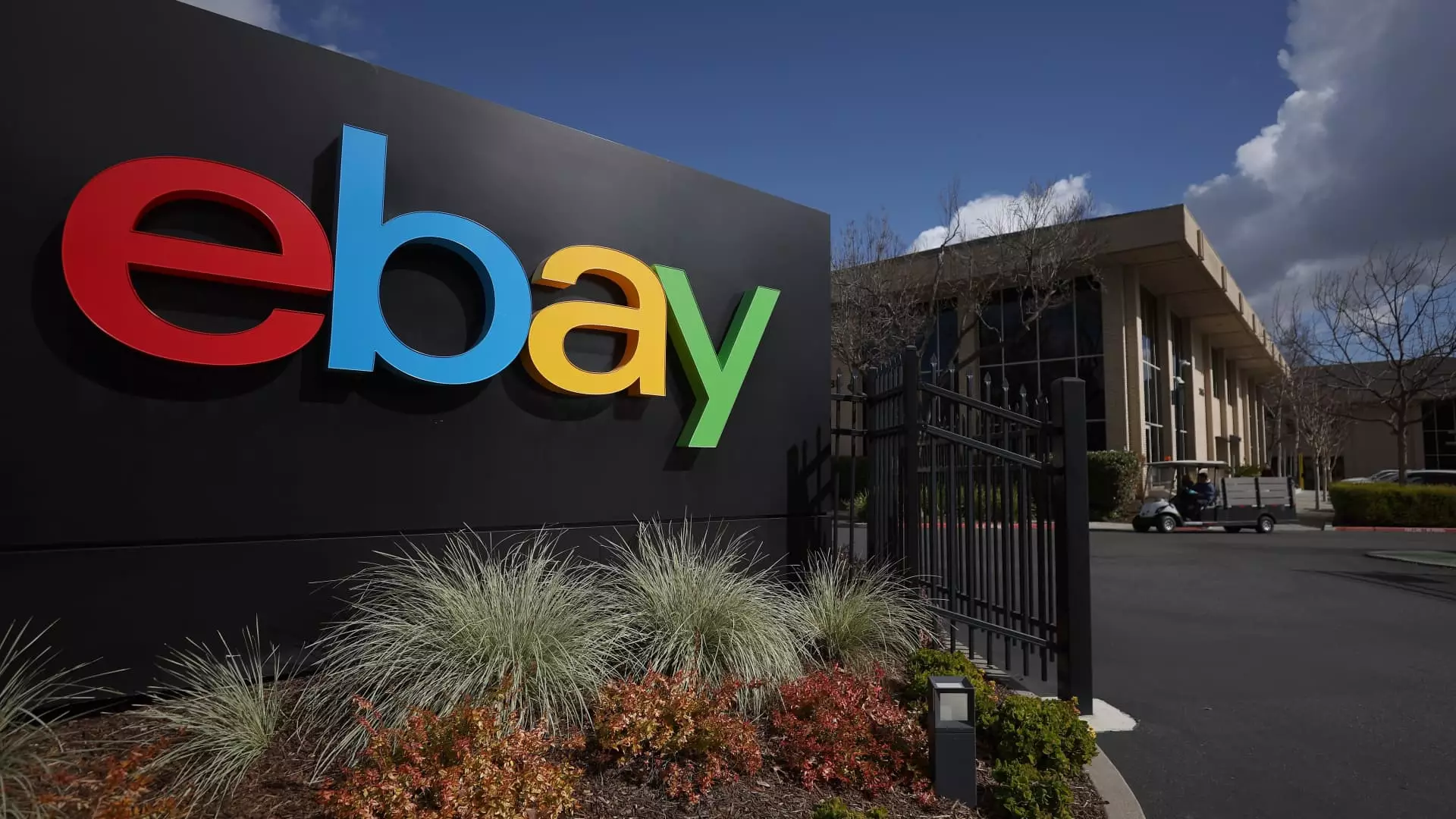On a noteworthy Wednesday, eBay shares experienced a remarkable 9% increase, marking the stock’s most impressive rise since November 2021. This surge can be attributed to Meta’s announcement regarding the integration of eBay listings into Facebook Marketplace, a platform well-regarded for streamlining local consumer transactions. This partnership has the potential to reshape the landscape of e-commerce, especially as it starts with pilot programs in Germany, France, and the United States. By allowing users to view eBay listings directly within the Facebook Marketplace, this collaboration promises to enhance the eBay shopping experience, ultimately driving sales and engagement.
Despite the initial excitement surrounding this partnership, eBay faces the monumental task of navigating a saturated e-commerce market. Its fiercest competitors—Amazon, Walmart, and even Meta’s own Marketplace—have established a significant foothold in the online selling arena. As eBay has shifted its focus to niche categories such as collectibles and luxury goods, they are trying to find creative ways to attract both buyers and sellers back to their platform. This new relationship with Meta may serve as a necessary lifeline, allowing eBay to increase its visibility and reach among a broader audience.
The collaboration comes at a time when Meta is under scrutiny from the European Commission, which previously fined the company for unfair practices relating to the bundling of its Marketplace with the main Facebook app. The European body expressed concerns that these practices could significantly disadvantage competitors. In response to this regulatory backlash, Meta appears to be taking proactive steps to address these concerns while simultaneously enhancing the marketplace experience for its partners like eBay.
CEO Jamie Iannone has highlighted that eBay’s integration with Facebook Marketplace is not just about increasing transactional activity; it’s also a broader strategy focused on customer loyalty and deeper engagement. Shoppers are increasingly seeking trust and reliability in their purchasing experiences, particularly during economically challenging times, and eBay aims to capitalize on that trend by improving how consumers find products through enhanced visibility.
While the merger of eBay and Meta’s Marketplace could invigorate eBay’s current standing in the market, it remains crucial for eBay to follow through with a solid strategy that capitalizes on this newfound exposure. The company will need to ensure that the integration not only drives sales in the short term but also fosters a loyal community of users who return to the platform. As they innovate and adapt to evolving consumer habits and preferences, the partnership with Meta might mark a pivotal moment in their journey to reclaim a competitive edge in the online marketplace.
Only time will reveal whether this strategic alliance blossoms into a substantial advantage for eBay as they strive to innovate while facing stiff competition and regulatory pressures.

